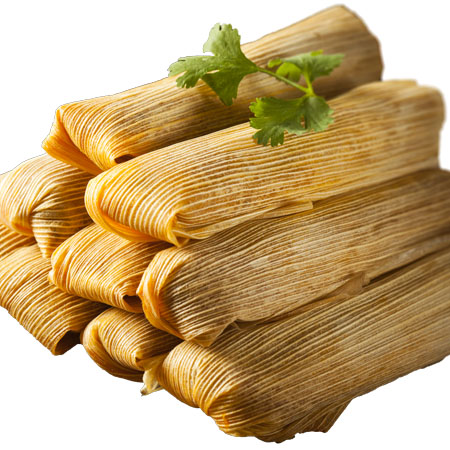North Texas cultures, traditions wrapped up in Christmas tamales
Verónica León, a Mexico native and professor of Spanish language and culture at SMU, talks about the tradition of eating tamales at Christmas.
By Tiney Ricciardi
GuideLive
Texans have an insatiable taste for tamales during the Christmas season. The little bundles of meat and masa have long been a traditional holiday indulgence among Hispanic families, but in the last couple decades, they've become a staple among many Anglo family Christmases too.
 Verónica León |
Tamales are a centuries-old dish associated with the Aztecs in Mexico, who were among the first documented cultures to make, sell and eat them. The word too comes from the Nahuatl word "tamalli," which means "wrap," says Verónica León, a Mexico native and professor of Spanish language and culture at Southern Methodist University.
Corn was a staple of the indigenous peoples' diet, but León says tamalli is a generic term that applies to more than 5,000 types of tamales in Latin America. The ones Texans know and love are characteristic of northern Mexico, which at one time included the Lone Star State.
Historically, on the days leading up to Christmas Eve, Hispanic families gathered to make tamales, an event known as "tamalada" or tamale-making party. And considering the arduous preparation -- grinding the corn, mixing it with other ingredients to make the masa, seasoning and cooking the meats, soaking the husks before spreading and wrapping the tamales, then steaming them -- the more hands in the kitchen, the better.

"Why do we eat turkey on Thanksgiving?" says León. "Even though turkey is available all year long, it goes back to time when you appreciate family. There are families that it wouldn't be Christmas without tamales."
The Battle of San Jacinto and the Treaties of Velasco may have officially made way for Texas' independence in 1836, but they didn't inherently change the region's culture.
"Traditions travel with people," León says. The government may have moved the border, but the people -- and therefore their traditions -- stayed in Texas.
Read the full story.# # #